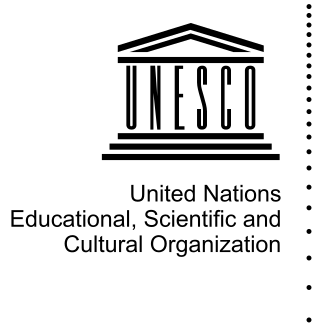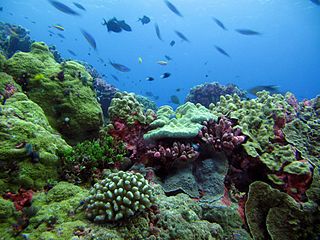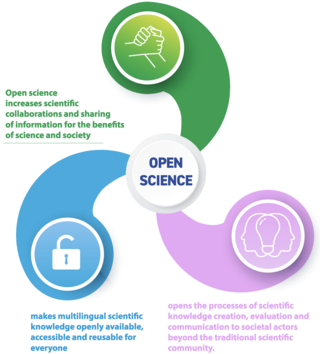
An endangered language or moribund language is a language that is at risk of disappearing as its speakers die out or shift to speaking other languages. Language loss occurs when the language has no more native speakers and becomes a "dead language". If no one can speak the language at all, it becomes an "extinct language". A dead language may still be studied through recordings or writings, but it is still dead or extinct unless there are fluent speakers. Although languages have always become extinct throughout human history, they are currently dying at an accelerated rate because of globalization, mass migration, cultural replacement, imperialism, neocolonialism and linguicide.

Cultural diversity is the quality of diverse or different cultures, as opposed to monoculture. It has a variety of meanings in different contexts, sometimes applying to cultural products like art works in museums or entertainment available online, and sometimes applying to the variety of human cultures or traditions in a specific region, or in the world as a whole. It can also refer to the inclusion of different cultural perspectives in an organization or society.
The Universal Declaration of Linguistic Rights is a document signed by the International PEN Club, and several non-governmental organizations in 1996 to support linguistic rights, especially those of endangered languages. The document was adopted at the conclusion of the World Conference on Linguistic Rights held 6–9 June 1996 in Barcelona, Spain. It was also presented to the UNESCO Director General in 1996 but the Declaration has not gained formal approval from UNESCO.

Freedom of information is freedom of a person or people to publish and have access to information. Access to information is the ability for an individual to seek, receive and impart information effectively. As articulated by UNESCO, it encompasses
"scientific, indigenous, and traditional knowledge; freedom of information, building of open knowledge resources, including open Internet and open standards, and open access and availability of data; preservation of digital heritage; respect for cultural and linguistic diversity, such as fostering access to local content in accessible languages; quality education for all, including lifelong and e-learning; diffusion of new media and information literacy and skills, and social inclusion online, including addressing inequalities based on skills, education, gender, age, race, ethnicity, and accessibility by those with disabilities; and the development of connectivity and affordable ICTs, including mobile, the Internet, and broadband infrastructures".

International Mother Language Day is a worldwide annual observance held on 21 February to promote awareness of linguistic and cultural diversity and to promote multilingualism. First announced by UNESCO on 17 November 1999, it was formally recognized by the United Nations General Assembly with the adoption of UN resolution 56/262 in 2002.
Slightly over half of the homepages of the most visited websites on the World Wide Web are in English, with varying amounts of information available in many other languages. Other top languages are Chinese, Spanish, Russian, Persian, French, German and Japanese.

The Internet Governance Forum (IGF) is a multistakeholder governance group for policy dialogue on issues of Internet governance. It brings together all stakeholders in the Internet governance debate, whether they represent governments, the private sector or civil society, including the technical and academic community, on an equal basis and through an open and inclusive process. The establishment of the IGF was formally announced by the United Nations Secretary-General in July 2006. It was first convened in October–November 2006 and has held an annual meeting since then.

The European Day of Languages is observed on 26 September, as proclaimed by the Council of Europe on 6 December 2001, at the end of the European Year of Languages (2001), which had been jointly organised by the Council of Europe and the European Union. Its aim is to encourage language learning across Europe.

The International Programme for the Development of Communication is a United Nations Educational, Scientific and Cultural Organization (UNESCO) programme aimed at strengthening the development of mass media in developing countries.
Linguistic rights are the human and civil rights concerning the individual and collective right to choose the language or languages for communication in a private or public atmosphere. Other parameters for analyzing linguistic rights include the degree of territoriality, amount of positivity, orientation in terms of assimilation or maintenance, and overtness.
Multilingual education (MLE) typically refers to "first-language-first" education, that is, schooling which begins in the mother tongue, or first language, and transitions to additional languages. Typically, MLE programs are situated in developing countries where speakers of minority languages, i.e. non-dominant languages, tend to be disadvantaged in the mainstream education system. There are increasing calls to provide first-language-first education to immigrant children from immigrant parents who have moved to the developed world. Offering first-language-first education to immigrant children in developed countries has gained attention due to the unique challenges these students face. When students move to a new country, language and cultural barriers can affect their academic progress and well-being. Some suggest that providing instruction in their first language initially, as part of multilingual education (MLE) programs, could help ease their transition. By recognizing and respecting their linguistic and cultural backgrounds, these programs aim to create a supportive learning environment where students feel more comfortable and confident. While this approach may contribute to the preservation of heritage languages, implementing MLE programs present other potential benefits and challenges.

Internet linguistics is a domain of linguistics advocated by the English linguist David Crystal. It studies new language styles and forms that have arisen under the influence of the Internet and of other new media, such as Short Message Service (SMS) text messaging. Since the beginning of human–computer interaction (HCI) leading to computer-mediated communication (CMC) and Internet-mediated communication (IMC), experts, such as Gretchen McCulloch have acknowledged that linguistics has a contributing role in it, in terms of web interface and usability. Studying the emerging language on the Internet can help improve conceptual organization, translation and web usability. Such study aims to benefit both linguists and web users combined.

Terralingua is a 501(c)(3) non-profit organization under U.S. tax law (#38–3291259) and a registered non-profit society in Canada based on Salt Spring Island in Vancouver, British Columbia whose mission is to support the integrated protection, maintenance and restoration of the biocultural diversity of life. Created in 1996, Terralingua's founders Luisa Maffi and Dave Harmon pioneered the concept and field of Biocultural Diversity, building on emergent ideas about the links between biological and cultural diversity.

The World Database on Protected Areas (WDPA) is the largest assembly of data on the world's terrestrial and marine protected areas, containing more than 260,000 protected areas as of August 2020, with records covering 245 countries and territories throughout the world. The WDPA is a joint venture between the United Nations Environment Programme World Conservation Monitoring Centre and the International Union for Conservation of Nature World Commission on Protected Areas.
The UNESCO Institute for Statistics (UIS) is the statistical office of UNESCO and is the UN depository for cross-nationally comparable statistics on education, science and technology, culture, and communication.

The Universal Declaration on Cultural Diversity is a declaration adopted unanimously by the General Conference of the United Nations Educational, Scientific and Cultural Organization (UNESCO) at its thirty-first session on 2 November 2001. It calls on nations and institutions to work together for the preservation of culture in all its forms, and for policies that help to share ideas across cultures and inspire new forms of creativity. It interprets "culture" in a broad sense and connects the preservation of culture to central issues of human rights. It defines a role for UNESCO as a space in which different institutions can develop ideas on cultural diversity, which has been a theme of many of UNESCO's activities in the years since. The primary audience of the declaration includes UNESCO's member states as well as international and non-governmental bodies, but other organisations and individuals have also been inspired by it.
Language management is a discipline that consists of satisfying the needs of people who speak multiple different languages. These may be in the same country, in companies, and in cultural or international institutions where one must use multiple languages.
Internet universality is a concept and framework adopted by UNESCO in 2015 to summarize their position on the internet. The concept recognizes that "the Internet is much more than infrastructure and applications; it is a network of economic and social interactions and relationships, which has the potential to enable human rights, empower individuals and communities, and facilitate sustainable development." The concept is based on four principles agreed upon by UNESCO member states: human rights, openness, accessibility, and multi-stakeholder participation, abbreviated as the R-O-A-M principles.

Sustainable Development Goal 9 is about "industry, innovation and infrastructure" and is one of the 17 Sustainable Development Goals adopted by the United Nations General Assembly in 2015. SDG 9 aims to build resilient infrastructure, promote sustainable industrialization and foster innovation.

Scientific languages are vehicular languages used by one or several scientific communities for international communication. According to science historian Michael Gordin, they are "either specific forms of a given language that are used in conducting science, or they are the set of distinct languages in which science is done."











